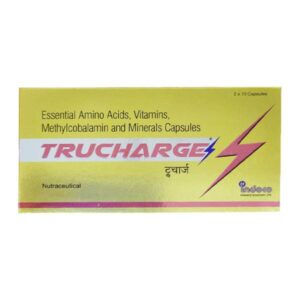ESSENTIAL AMINO ACID + VITAMIN + METHYCOBALAMIN
Essential Amino Acid: Drug: Essential Amino Acid
Description:
Essential amino acids are a group of nine amino acids that cannot be synthesized by the body and therefore must be obtained through diet or supplementation. These amino acids are essential for protein synthesis, growth, metabolism, and various physiological processes in the body.
Use:
Essential amino acid supplements are commonly used to ensure an adequate intake of these important nutrients. They are often utilized by athletes, bodybuilders, and individuals with certain medical conditions that may impair protein synthesis or increase the body’s demand for protein.
Mechanism of Action:
Essential amino acids serve as building blocks for protein synthesis, which is crucial for the growth and repair of tissues, enzymes, hormones, and other molecules within the body. By providing the necessary amino acids, essential amino acid supplements support protein synthesis and help maintain optimal health and body function.
Dose:
The recommended dosage of essential amino acid supplements can vary depending on the individual’s age, weight, activity level, and specific needs. It is best to consult with a healthcare professional or follow the instructions on the product label for appropriate dosing guidance.
Side Effects:
Essential amino acid supplements are generally safe when taken at the recommended doses. However, some individuals may experience mild gastrointestinal discomfort, such as nausea, bloating, or diarrhea. Allergic reactions to specific amino acids are rare but possible. If any concerning side effects occur, it is advised to discontinue use and seek medical attention.
It is important to note that essential amino acid supplements should not be used as a substitute for a balanced diet. They are meant to supplement dietary intake and should be used under the guidance of a healthcare professional.
Vitamin: Drug name: Vitamin
Description: Vitamins are organic compounds that are essential for the normal functioning of the body. They are micronutrients that are required in small amounts and cannot be synthesized by the body in sufficient quantities.
Use: Vitamins are used to prevent or treat vitamin deficiencies that can lead to specific health problems. They are crucial for maintaining overall health, promoting growth and development, regulating metabolism, and supporting various bodily functions.
Mechanism of action: Vitamins function as coenzymes or precursors to coenzymes, which are necessary for the proper functioning of enzymes in various biochemical reactions in the body. Each vitamin has a unique role and mechanism of action, but their collective function involves assisting in energy production, promoting cell growth and repair, supporting the immune system, and aiding in the metabolism of carbohydrates, proteins, and fats.
Dose: The dosage of vitamins varies depending on age, sex, overall health, and specific needs. The recommended daily intake of each vitamin is generally stated as a Recommended Dietary Allowance (RDA) or Adequate Intake (AI) value. It’s important to follow the recommended dosage as excessive intake of certain vitamins can lead to toxic effects.
Side effects: Vitamins are generally safe when taken within the recommended dosage. However, high doses of certain vitamins can cause adverse effects. Side effects of excessive vitamin intake may include nausea, stomach cramps, diarrhea, headaches, fatigue, and in some cases, more serious consequences such as organ damage. It’s important to consult with a healthcare professional before starting any vitamin supplementation to determine the appropriate dosage for individual needs.
Methycobalamin: Methycobalamin is a form of vitamin B12 that is prescribed as a dietary supplement. It is commonly used to treat vitamin B12 deficiency, which can occur due to various conditions such as pernicious anemia, malabsorption disorders, vegan or vegetarian diets, and certain gastrointestinal surgeries.
The mechanism of action of Methycobalamin involves its conversion into two active coenzymes, methylcobalamin and adenosylcobalamin, which play essential roles in various metabolic processes in the body. Methylcobalamin is involved in the conversion of homocysteine to methionine and the production of myelin, which is crucial for the proper functioning of the nervous system. Adenosylcobalamin is involved in the conversion of methylmalonyl-CoA to succinyl-CoA, a vital energy-producing pathway.
The usual dose of Methycobalamin depends on the individual’s condition and severity of vitamin B12 deficiency. It is typically administered orally or through intramuscular injections. The recommended adult dose for oral use is 1,500 to 2,000 micrograms per day. For intramuscular injections, the usual starting dose is 1,000 micrograms, followed by maintenance doses ranging from 1,000 to 2,000 micrograms per month.
Common side effects of Methycobalamin are rare but may include mild diarrhea, nausea, skin rash, itching, headache, or dizziness. Allergic reactions are extremely rare, but if any signs of an allergic reaction such as swelling, difficulty breathing, or severe dizziness occur, immediate medical attention should be sought.
It is important to note that Methycobalamin is a prescription medication and should only be used under the guidance and supervision of a healthcare professional. They can determine the appropriate dose and duration of treatment based on an individual’s specific needs and medical condition.

